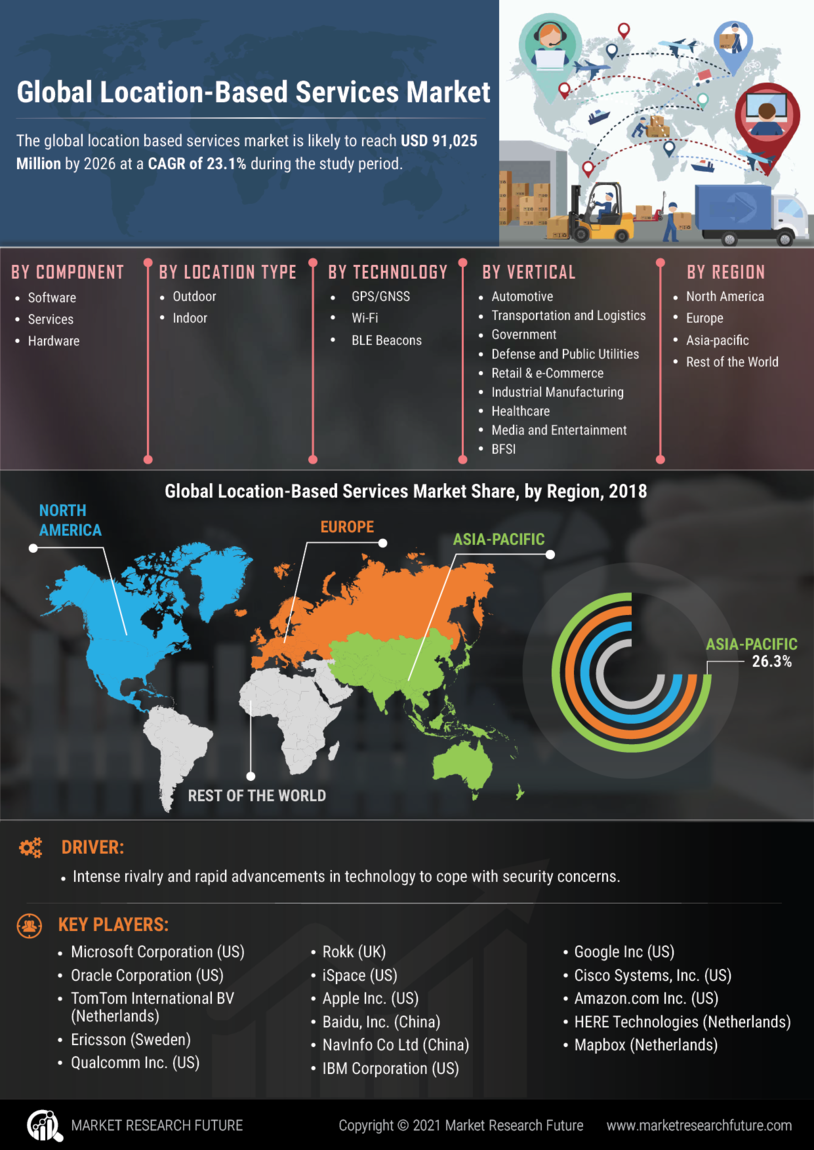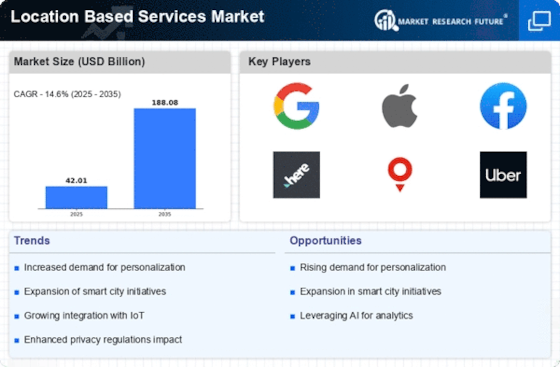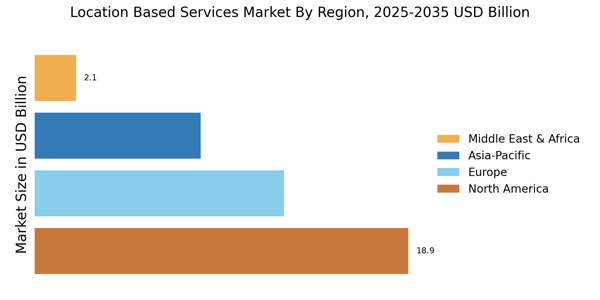Advancements in Mobile Technology
The Location Based Services Market is significantly influenced by advancements in mobile technology. The proliferation of smartphones and mobile applications has facilitated the widespread adoption of location-based services. Recent statistics indicate that over 80% of mobile users utilize location services, highlighting the importance of mobile technology in this sector. Enhanced GPS capabilities and improved connectivity have enabled businesses to offer real-time location-based solutions, such as navigation and local search. These advancements not only enhance user experience but also provide businesses with valuable insights into consumer behavior. As mobile technology continues to evolve, the Location Based Services Market is poised for further expansion, driven by the increasing reliance on mobile devices for everyday activities.
Integration of Artificial Intelligence
The integration of artificial intelligence (AI) into the Location Based Services Market is emerging as a transformative driver. AI technologies enable businesses to analyze vast amounts of location data, leading to more informed decision-making and enhanced service offerings. For instance, AI-powered algorithms can predict consumer behavior based on location patterns, allowing companies to tailor their marketing strategies effectively. This capability is particularly valuable in sectors such as retail and hospitality, where understanding customer preferences is crucial. As AI continues to advance, its application in location-based services is expected to grow, potentially revolutionizing how businesses interact with consumers. The Location Based Services Market stands to gain significantly from this integration, as companies seek to leverage AI for competitive advantage.
Rising Demand for Personalized Services
The Location Based Services Market experiences a notable surge in demand for personalized services. Consumers increasingly expect tailored experiences based on their location, which drives businesses to adopt location-based technologies. According to recent data, approximately 70% of consumers express a preference for personalized offers and recommendations. This trend compels companies to leverage location data to enhance customer engagement and satisfaction. As a result, businesses are investing in advanced analytics and geolocation technologies to better understand consumer behavior. The integration of these technologies not only improves service delivery but also fosters customer loyalty. Consequently, the Location Based Services Market is likely to witness substantial growth as organizations prioritize personalized interactions to meet evolving consumer expectations.
Increasing Focus on Smart Infrastructure
The Location Based Services Market is significantly impacted by the increasing focus on smart infrastructure. Governments and municipalities are investing in smart city initiatives that incorporate location-based technologies to improve urban living. These initiatives often include the deployment of sensors and IoT devices that collect location data to enhance public services, such as transportation and emergency response. Recent reports indicate that investments in smart city projects are projected to reach trillions of dollars in the coming years. This trend not only enhances the quality of life for residents but also creates opportunities for businesses to develop innovative location-based solutions. As smart infrastructure continues to evolve, the Location Based Services Market is likely to experience substantial growth driven by these initiatives.
Growth of E-commerce and Delivery Services
The Location Based Services Market is experiencing growth driven by the expansion of e-commerce and delivery services. With the rise of online shopping, businesses are increasingly utilizing location-based services to optimize delivery routes and enhance customer satisfaction. Recent data suggests that the e-commerce sector has seen a growth rate of over 15% annually, with location services playing a crucial role in this expansion. By leveraging geolocation data, companies can provide accurate delivery estimates and improve logistics efficiency. This trend not only benefits consumers through timely deliveries but also enhances operational efficiency for businesses. As e-commerce continues to thrive, the Location Based Services Market is likely to benefit from the increasing demand for location-aware solutions.

















